Out and about is an article in which we chat to people who live abroad, or who have lived and worked there, but is back in South Africa. We gladly hear from anyone who wants to share their experiences with us.
This week we chat to Christina du Toit, who lives in Melbourne.
Hello, Christina! From where in South Africa are you originally and why did you decide to move to Australia?
I grew up in Pretoria’s Moot area, but eventually we packed up our home in the East Rand seven years ago and decided to move to Melbourne. We were blessed with a wonderful opportunity, because my husband, Jacob, received a sponsorship from the Victoria government. This enabled us to relocate to Melbourne. Melbourne is a world city that offers unbelievable opportunities to us and our children.
I think the greatest moment in anyone’s life is when you realise you have a choice about where to live. If you have peace in your heart over this, it is easier to begin the enormous administrative process, the packing up and the goodbyes.
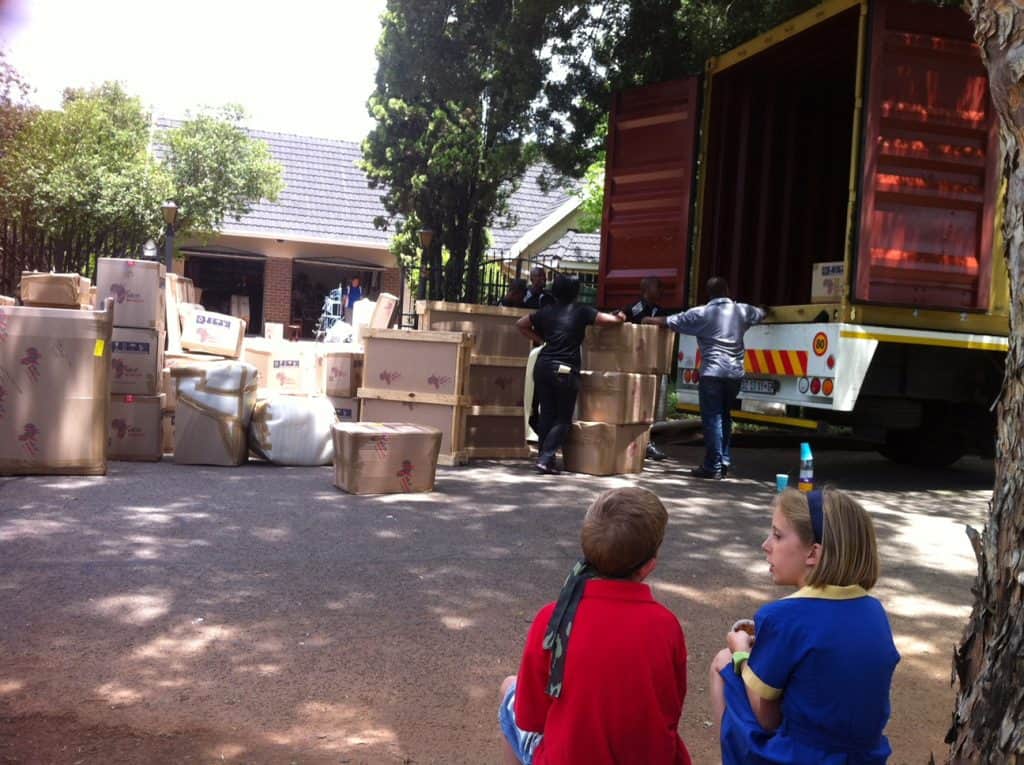
Tell us more about your family.
We are a typical Afrikaans family with very strong family ties, and we enjoy each other’s company and doing things together. We have been living in Melbourne for seven years now and have moved four times in this time. In our case, we first lived in the west of Melbourne, and then we moved to the east of Melbourne when the children started high school.
We experienced this almost like a second emigration process. The environment can differ completely even in one city, but we are thankful that we could experience both sides of Melbourne. We now live to the northeast of Melbourne in a little hamlet called Eltham. It takes about an hour to travel to the heart of Melbourne by train.
Jacob and I will be married 27 years this year. Our daughter Jana (18 years) is in matric, while our son Conrad (15 years) is in his ninth year. Our dogs Nowa (a black dog) and Graci (a white whippet) are two true Aussies and had to learn Afrikaans fairly quickly for the sake of survival.
Melbourne is known as “the most lockdown city in the world” and our family could experience this little bit of world history together. One day I want to write a book about the whole thing!
Was it difficult to adapt, or did you make friends and integrate into society easily?
I think that we initially underestimated the impact of emigration. That huge quiet loneliness that everyone experiences when they are in a different time zone than their heart’s people can be quite overwhelming. Even though there are many other people (even South Africans) around you, they do not necessarily know your backstory. I realised that one should treasure old and new friendships and not take these for granted.
I think the secret to making friends is to connect with things that are important to you (e.g., schools, churches and community projects) and that are fun to do (e.g., sport, hobbies and travelling). In South Africa I was part of a wonderful group of 13 women who got together on Wednesdays to crochet the most beautiful things and enjoy a cup of tea. I have also joined a similar creative group in Melbourne who gets together (in the community centre), and this is good for me. We also meet lovely people when we go for walks with the dogs along the sea, in dog parks or even while walking in the neighbourhood.
I also enjoy introducing people to one another and to see how new friendships develop. I love creating such opportunities, for example Floreer Oorsee. I also arrange for parents of our schools to get together once a week for a coffee and a chat. It is a privilege to make my world a nicer place for everyone around me.
It can be challenging to adapt to a new country. What was the strangest thing to get accustomed to in the new country? What was the biggest adjustment for you abroad?
It is the smaller things that become the large things and that can make you feel lonely.
The sounds around us: The birds sound different here – not to mention the funny drone of the possum or the koala! The sounds in the shops and on the streets; it all sounds so different. At our Floreer Oorsee morning tea I had to wipe away a tear when I listened to 80 women talking and laughing in Afrikaans. It was the most beautiful sound I have heard in years. Laughing just sounds some much nicer in Afrikaans!
The unexpected feeling of safety: For the first month here, we placed a chair in front of the door every evening because it was very difficult to sleep in a house without a fence, alarm, burglar bars or security gates. It is still weird to walk around the city at night or to see so many vehicles parked overnight in the streets. With time we became more trusting, but I think we will always be vigilant, yet thankful for that “feeling” of safety.
To be trusted: Most shops have facilities where you can ring up, pay for and pack your own shopping. Even if you fill up with fuel, people believe that you will go in to pay for the fuel. You are trusted to pay the money yourself for using the bus or train. It is wonderful to be trusted to do the right thing (even though there are some people who violate this trust, because humans are humans all over the world).
Informal background knowledge: In the beginning it felt like I could not understand the English that people spoke here. Then I realised I was not always sure what they were referring to when they spoke. Their childhood heroes, celebrities, jokes and some of their customs are unique and you get familiar with it as time goes by.
The time zones: I always check what time it is in a person’s country before I phone them, and I set my phone to silent mode at night. You get such a fright when you get an early-morning call. The time zone challenges are not restricted to South Africans, but also apply to Australians, because we are not all in the same time zone here: We have daylight savings time in Sydney and Melbourne.
The environment: Melbourne’s wonder is that nature changes unbelievably if you drive for two hours in any direction. Some of the best waves for surfing is at Torquay, but the sea looks like a calm dam around Melbourne’s Port Phillip Bay. You get hot water springs or snow two hours outside Melbourne. The west of Melbourne is flat like the Free State plains, whereas the east has unbelievably beautiful mountains, hills and vantage points. The world is much larger than you realise.
You are a personal and life couch. Tell us a bit more and where readers can contact you.
I did research for my DPhil on different leadership theories and how you can use these to help others get through the difficult times in their lives. It is time and again a great privilege to help others so that they can also be leaders of their own lives in the stage of life in which they currently are. I listen, support, encourage and try shining a different light on each situation, whatever that may be.
You are welcome to read more about me at https://www.leadyourself.au/. I look forward to hearing from you.
We started the Facebook page Floreer Oorsee to help specifically South Africans in Melbourne to not only blossom here where they now find themselves, but to excel in everything they busy themselves with.
We will once again host a ladies’ tea on 23 March 2024 in the heart of Melbourne (at Scots Church) so that South African women can be pampered a little, chat a bit, meet new friends and build networks.
Are there any true South African shops near you where you can buy comfort food like biltong?
An interesting phenomenon across the world is a marked increase in South African shops. We are quite fortunate that there are such shops close to us. What is even better is that our local supermarket group (Aldi’s) also has a South African week during which they sell favourites like South African chocolate, biltong, Mrs Ball’s chutney, Ouma rusks, South African spices, rooibos tea and Safari dried fruit. It is always fun to be in the shops then, seeing other South Africans with their shopping trolleys and starting up a chat.
Just as in South Africa, boerewors, biltong and dried wors are necessities and even these are offered in certain supermarkets. In Point Cook (west of Melbourne) lives the friendliest Vietnamese butcher, Le (Le’s Butcher, Sanctuary Lakes), who succumbed to pressure from all the South Africans and now makes the most delicious boerewors.
In our community there are South African entrepreneurs who meet our needs and help us to drown our longing in food:
- Annemarie – https://www.facebook.com/annemarie.cakes
- Marietjie – https://bushmanmeats.com.au/
Are there any professional service providers (for example doctors, lawyers and dentists) where you live that can help you in Afrikaans?
There certainly are professional service providers who can help you in Afrikaans, but you have to ask around and search, as there are not many of them here in Melbourne. I believe the story would be different in Perth and Brisbane, but where it is possible, we try and support our own people.
Very friendly services and support:
- Hendrika (immigration settlement and integration live coach) – https://migrantwhisperer.com/
- Mariette (coordinator for inhouse disability support care) – https://timelesscare.com.au/
- Onida (celebrant) – onidaweir@gmail.com
- Edna (Tearific, renting beautiful tea cups for special occasions) – edna.coetzee@outlook.com
- Marcell (to send parcels to South Africa) – https://shippler.com.au/
- Jolande (skin care and skin treatments) – https://www.facebook.com/skinglamstudio
You said you have two children. How old are they and how did they adapt to the new country?
Jana and Conrad have always been the only Du Toits in both schools that they have attended, and going to school here has always been (and still is) a completely unique experience for us all.
Conrad completed grade 1 in South Africa and then started school here with his TV English and a few English lessons. It was a very difficult and very long first quarter. Not only was Australian English a challenge, but children from 94 different countries attended the same school.
This year, Conrad is in year 9 and was chosen to go on a nine-week-long leadership development camp. He sings in a boys’ choir in school and plays the double bass in an orchestra. He has a large and diverse circle of friends and enjoys high school.
Jana could attend school up to grade 4 in South Africa before we came to Australia. Some of the children in her class here made fun of her Afrikaans accent and it was difficult to make new friends and to have the confidence to say something in class. A year later, Jana was selected to be in a video (and to do some of the voice-overs) that represented the school at an international school conference for International Baccalaureate (IB) schools.
Jana will be completing year 12 this year and was selected as Environmental Captain at their school. She is also part of various committees of the school (which she has only been attending for two years now). Academically her marks are good enough that she only has to take four subjects in Year 12 (instead of six). She has experienced the most wonderful school adventures and made fantastic friends.
It is also customary for children from 14 years and nine months to start working. Jana has already had two paying jobs and did voluntary work as part of her Duke of Edinburgh certification.
Jana and Conrad are both very balanced children who have seized the opportunities here, for example playing chess in the library after school, participating in Nippers (young lifesavers) in the cold sea here or partaking in horse-riding, swimming and piano lessons. They can take walks alone with Nowa and Graci, or cycle, because there are lovely pathways and parks everywhere. Conrad and his friends regularly have water pistol parties in the park if the weather is nice and hot. Jana is now learning to drive, and Conrad is planning a vegetable garden for us.
We are very proud of and grateful for the way in which Jana and Conrad are coping with all the changes in their lives, meeting challenges, thinking and making choices about the world around them.
How does the school system in Australia differ from that of South Africa?
Our experience of the Australian school system is that it is completely different from South African schools. They think differently about schools here and success is defined in a completely different manner.
Jana and Conrad’s first school here was Alamanda College, a public IB school for preschool to year 9. The school did not even want to look at their files with their South African reports and awards, and simply accepted them for who they are. Jana and Conrad did not have any tests, exams or homework and were evaluated on their classwork alone. Their reports sometimes comprised 28 pages! There were no price-giving ceremonies – only motivational certificates. At the end of year 9 a political representative presents an award to a boy and a girl, en then there is the principal’s award for the most exceptional student in year 9 (which was awarded to Jana).
Alamanda College and Balwyn High School provided free additional supportive English classes for all international students, going to much trouble to help the children to adapt. The primary schools here have some cute traditions, for example Book Day, when every class is decorated by the children themselves according to the class’s favourite book that they have read. Children and teachers dress like their favourite book characters and walk in a parade through the school to the beat of music.
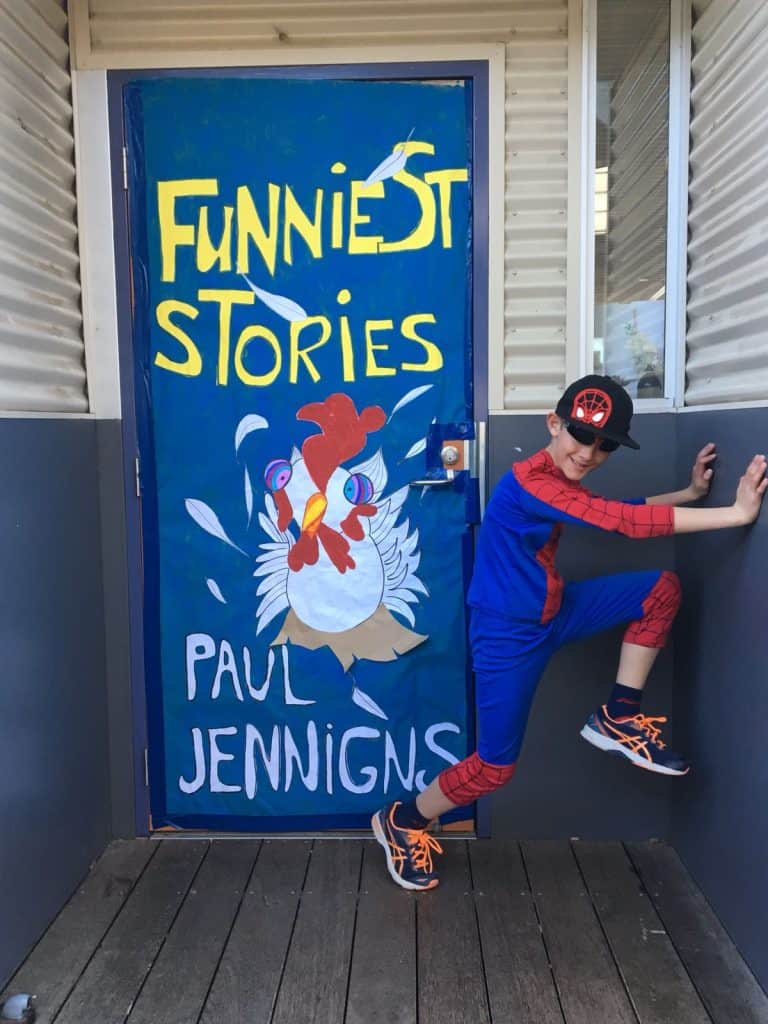
Schools here normally close just before Christmas and then they have a large open air concert, parents sitting on picnic chairs and listening to every class singing a Christmas carol. I was astonished about how often the primary school children walked as a class with their teachers through the neighbourhood to parks, making them more aware of their environment. Obviously, the children are also taken out in busses on field trips and the like, but in high school my children have regularly joined the teacher on the tram into the city for an event that they had been invited to.
Alamanda College’s school grounds looked completely different when we first attended it because it had no fences. The school grew tremendously and when we left, they already had six different timetables. This means that children start school at different times to facilitate the traffic around the school. The children also have breaks at different times – and what makes it even more special is that no bell was ever rung; everyone (primary school children) simply cooperated. The jungle gyms and flying foxes are all underneath sun-blocking nets and there is air-conditioning in every class.
In Balwyn High School – the high school that Jana and Conrad now attend – there are only four periods every day, and they have to determine themselves where they have to be and when, because teachers and pupils alike change classes and no class is necessarily at the same place again, except of course for science and food studies.
The school curriculum is also quite different because there are many other subjects that children can choose from: jewellery making, which taught Jana to make real silver jewellery; patisserie, where you can invent your own ice-cream flavour; sailing, which involved teaching children in small boats at a harbour nearby; even app development, musical composition and website development. There is also this very interesting subject: Outdoor Education and Environmental Studies, where they learn more about the environment and preservation. They do theory, but also have the opportunity to go sea kayaking, mountain biking, rock climbing, surfing, skiing in the snow and hiking, where they must survive in the wilderness for a few nights with only the things on their backs.
Both Australians schools that my children attended were also very technically driven. Conrad started with an iPad in year 2, and Jana with a laptop in year 5. We got through all the lockdowns through interactive online classes. Most of their textbooks are now eBooks. I also think that pupils here are taught to be very independent and they communicate directly with their teachers through emails or their schools’ Compass (a school communication medium).
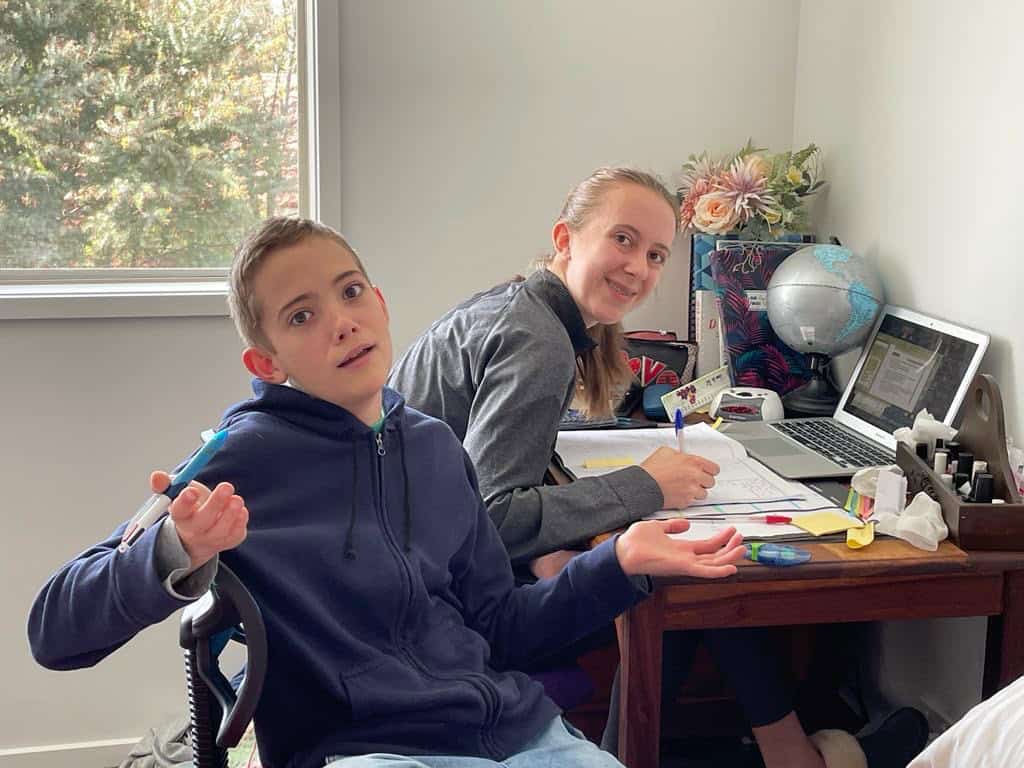
Jana started with year 10 at Balwyn High School, and Conrad with year 7. It was also socially challenging for them to walk into a new school as older children once again, to make new friends and to learn and understand the new school’s way of doing things, especially after two years of lockdown during which they were very isolated. Here they start exercising how to write exams in year 10, although the main focus is on year 11 and 12. At the end of year 12 they only consider the marks of six subjects and then you get an ATAR (Australian Tertiary Admission Rank) mark, which indicates your rank compared with everyone else in the state who also wrote the exam. If you choose to go to university, you can apply, but the universities send you an invitation if they want you as a student there.
I think every school is different and also changes year after year. If you want to read more about the schools that we attend here, visit:
- Alamanda Collage – https://www.alamandacollege.vic.edu.au/
- Balwyn High School – https://www.balwynhs.vic.edu.au/
What do you miss most of South Africa? What is your favourite memory of South Africa?
We all agree that our greatest longing is for our family and friends who are still in South Africa. I realised that we know what our South African friends and families’ houses and worlds look like, but that only some of them would have the opportunity to sit at our table and experience our world. Our favourite memories are of our dearest people, and we are grateful for each and every one of them.
Africa will always be in our blood. We miss our beautiful African nature, our, African animals and birds, the smell of the Bushveld, the road trips through the Karoo on our way to the Cape, cheap braai wood, a variety of biltong and boerewors, double-brick houses, the fantastic and moderate weather of Johannesburg and the warm-heartedness of South Africans.
Other things that you cannot explain are the TV programmes that we grew up with and that formed our viewpoints (Wielie Walie and Kraaines), and even RSG and Huisgenoot.
We do have zoos here, but not game reserves, and sometimes one is in awe about the blessing to have seen lions, rhinos, hippos and elephants in their natural habitat.
What interesting things have you discovered about the country where you live and that you didn’t know before?
Australia is enormous, and there are many dialects of English. Aussie English is neither USA, nor UK English.
Every town in Australia started off with a church, a botanical garden and a bakery. Meat pies are an Australian thing, and the status of a town can be judged by the quality of its bakery’s meat pies and sausage rolls.
Parks and children’s playgrounds are important places, and everyone visits the parks over weekends. Gas braai facilities are available in most parks, and we truly enjoy the picnic facilities.
Manual labour is scarce and expensive, and Working Bees provide opportunities for the community to work together to complete a project. After every function everyone helps to clean up and no-one needs to be asked to help. This is how we do it here.
Parking is very expensive, and you have to arrange your own parking if you decide to commute with your car. Luckily, we have exceptional public transport (trains and busses) and you can get along just fine without having to use your car.
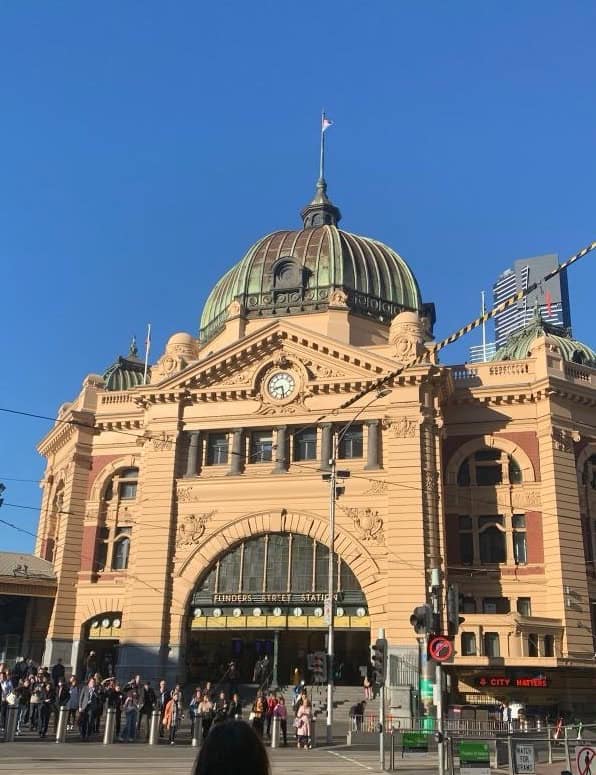
What does your Afrikaner heritage mean to you? Which traditions have you and your family allowed to continue abroad?
We will always be children of Africa. We proudly speak Afrikaans in our home, and we have a wide circle of friends who also speaks Afrikaans.
We do our best to support artists from South Africa when they visit Melbourne. We also look out for Afrikaans church services in Bayside twice a year. We even attend South African sokkies if the opportunity is there.
News from South Africa remains important, and we make a point of reading and remaining abreast of everything that happens in South Africa from various sources, because that is where our people are.
The grandarents may still be in South Africa, but we go to much trouble to catch up with them via WhatsApp calls, photos and videos.
Do you still speak to one another in Afrikaans? Which South African traditions do you teach your children? Which Afrikaans resources do you rely on?
Afrikaans is still our home language and every day we converse with our close friends in Afrikaans, as well as in WhatsApp messages to our families at home. I am very proud of Jana and Conrad who speak, read and write beautiful Afrikaans despite having only grade 1 and grade 4 Afrikaans.
Melbourne is very multicultural and out of respect most people speak English at places like the church, but where we have the opportunity to speak Afrikaans, Afrikaans triumphs. Most younger children are anglicising, however, and it is sad to see.
It is important to us that our children keep in contact with their grandparents and cousins in South Africa, and we are grateful that our grandfather and grandmothers return this favour.
We encourage our children to respect others, to greet with a handshake and to put others at ease. We are also thankful that our children can hold conversations and can have a bigger opinion because they have experienced a bigger part of the world.
How do your children establish and maintain a relationship with their grandparents? How often do you as family see each other?
It has always been and still is one of the greatest and nicest things to do: visiting our grandparents. When we go to South Africa, we count the days and make plans for every second of our time together.
I take many pictures and try to send daily pictures of what we did and short messages for the grandparents. Since the start they have gone to so much trouble to speak to Jana and Conrad and their relationship became even closer during the emigration process.
It is still one of the most valuable moments when they say we must take a quick picture because Grandfather will enjoy it, or to remember to tell Grandmother this and that.
Airplane tickets are very expensive and although we initially planned on visiting every year, things like buying a house, pets and school and work calendars made it very difficult to do. We therefore have to plan our visits to South Africa well in advance. Luckily, the grandparents can still fly, and we have been lucky to have them in Melbourne a few times now.
Any lessons that you have learnt?
Emigration is not just an emotional decision. If you emigrate, you will have to review and reconsider many things, including how to keep in contact with your friends and family in South Africa.
Financial planning is absolutely necessary, and you have to make sufficient provision, because things are expensive. Understand how things like pension and tax work, and how expensive houses are here in Australia.
Keep busy and keep on exploring. It helps with the longing and to make new friends.
The family is the most important “fort” in the world of the unknown, and we have to rely on and trust each other in times of crises.
Your Australian friends become family, and Christmas and birthdays are now planned with them and no longer only with your family.
Hold on to the beauty of yesterday and focus on the adventures of tomorrow.
Write to us
Do you live abroad, or have you recently returned from abroad? You can also write an Out and about article. Email wereldwyd@afriforum.co.za en we will send you questions to answer.

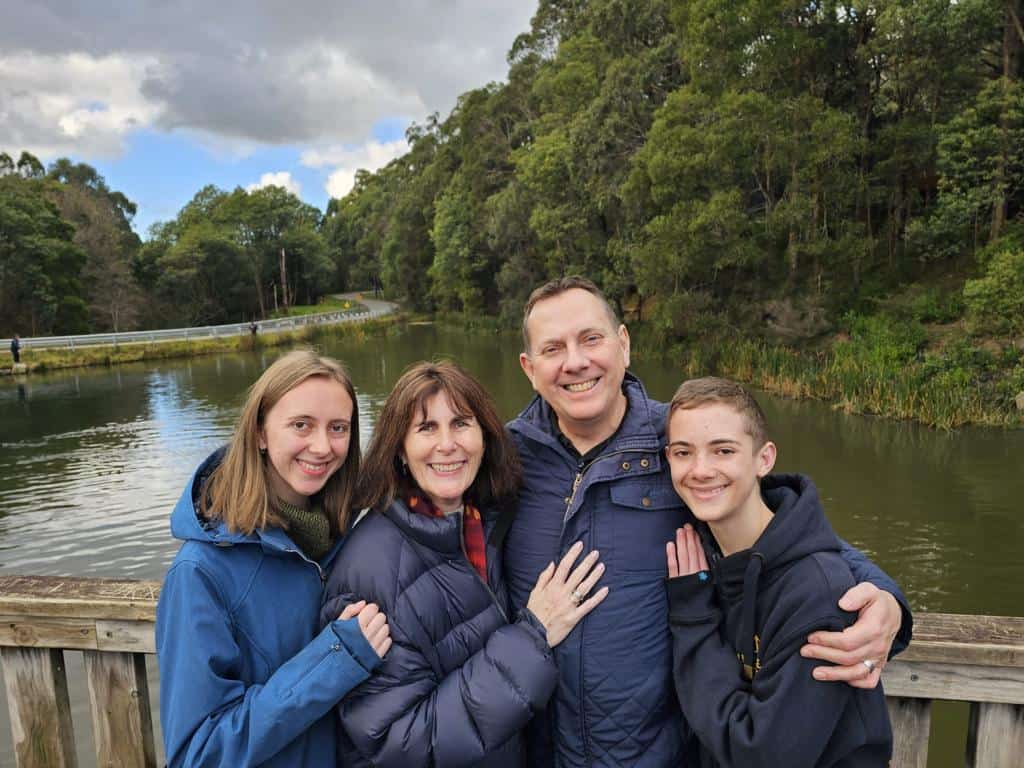
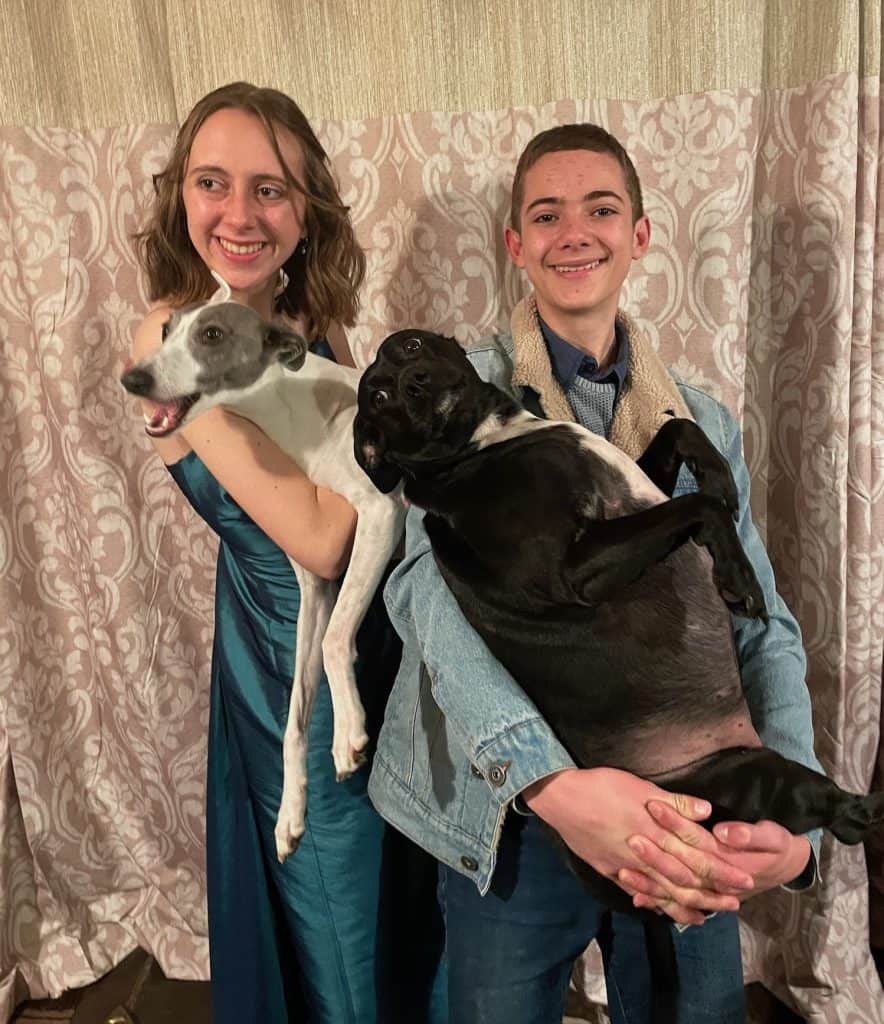
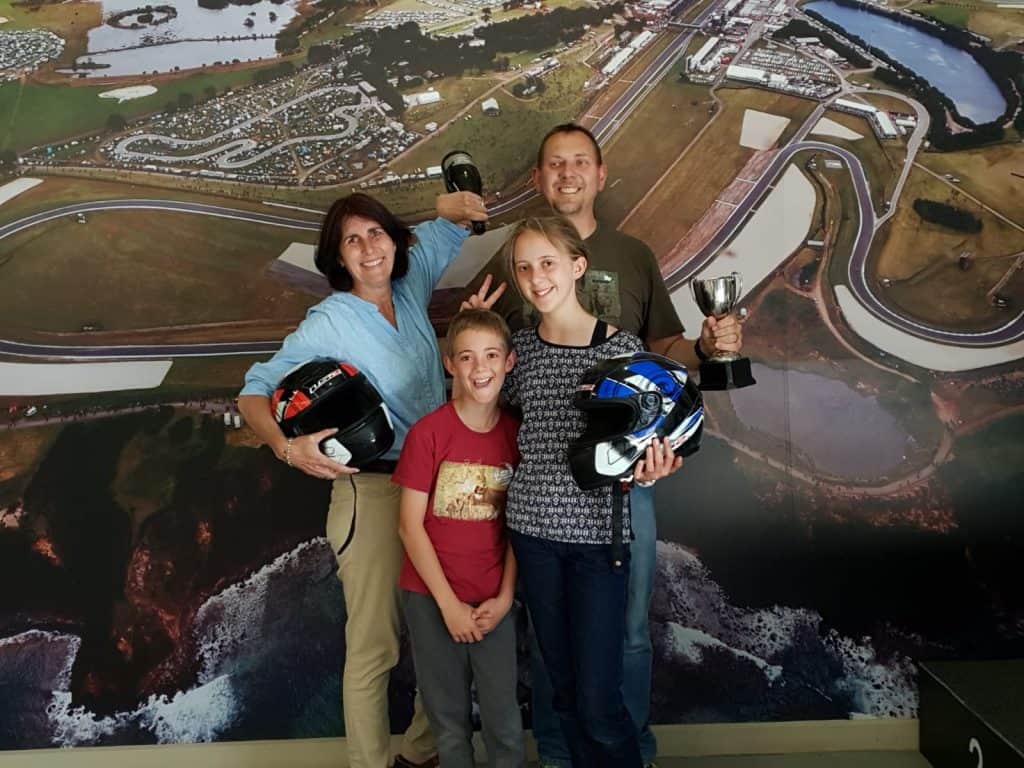

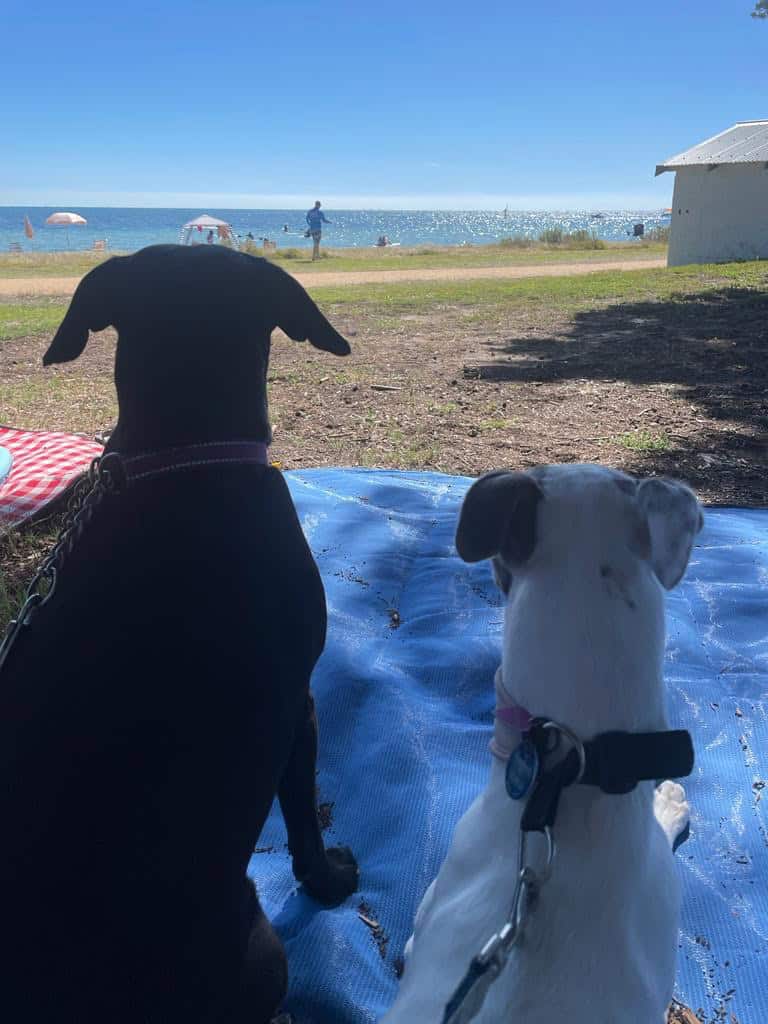
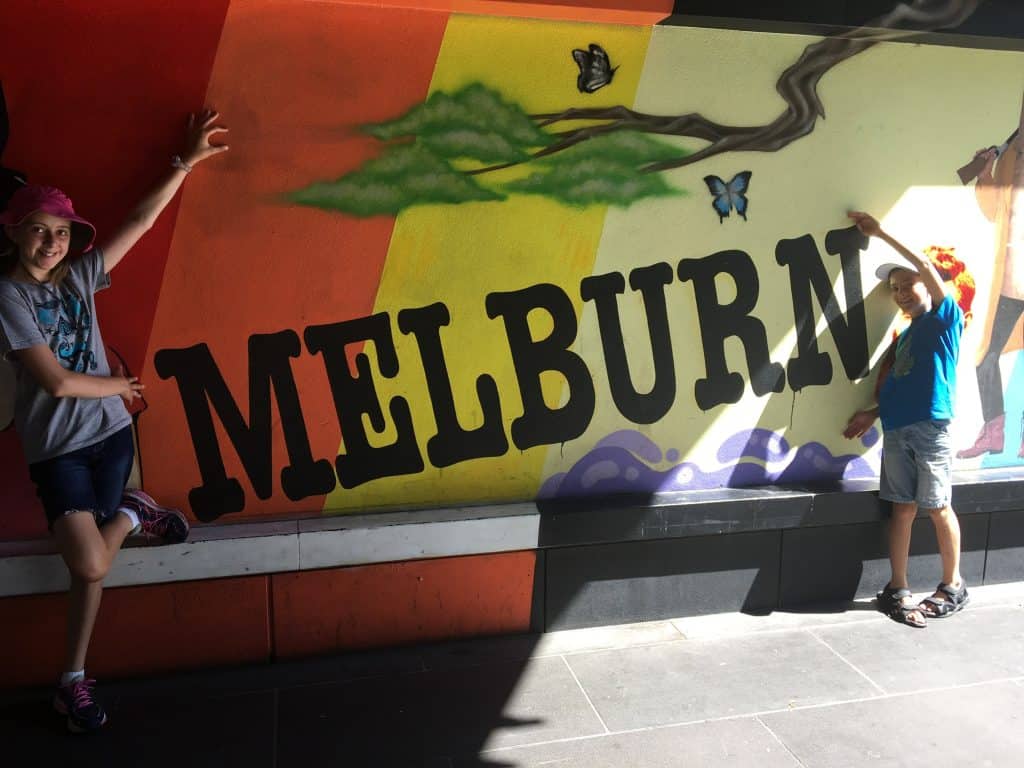

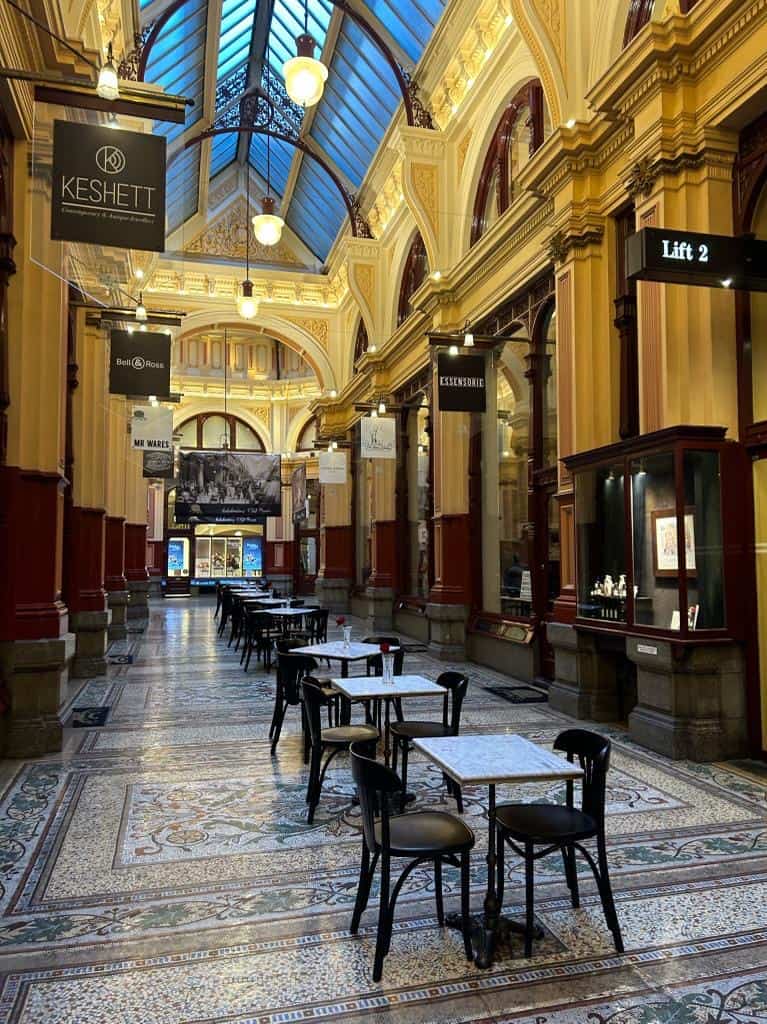
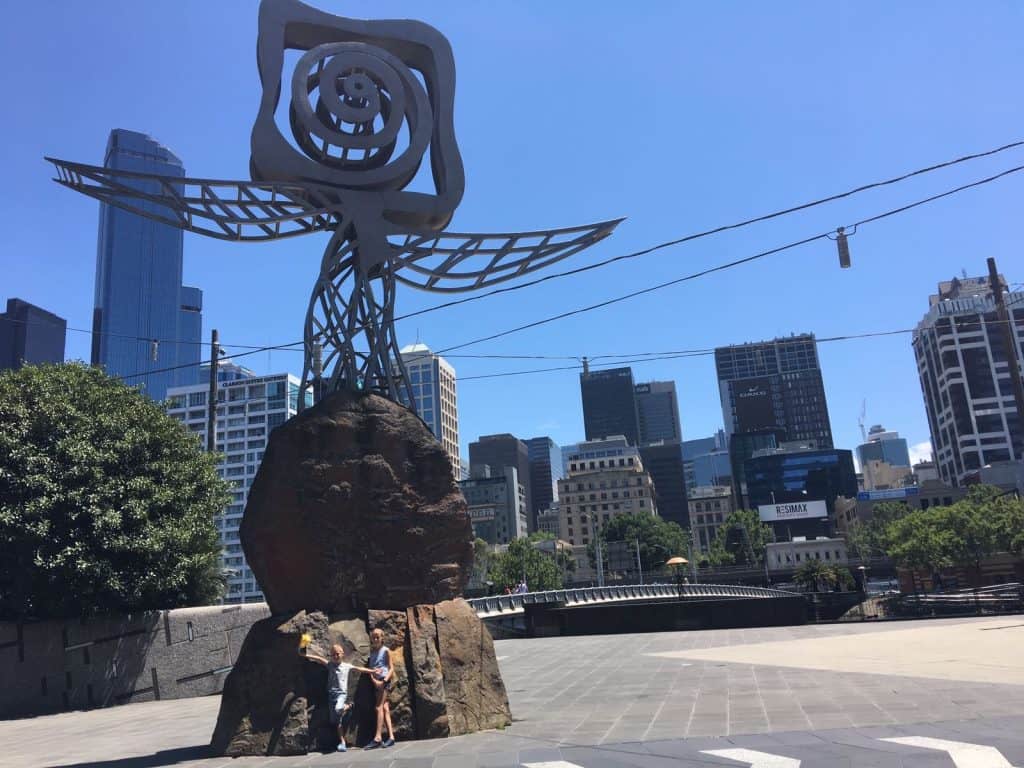
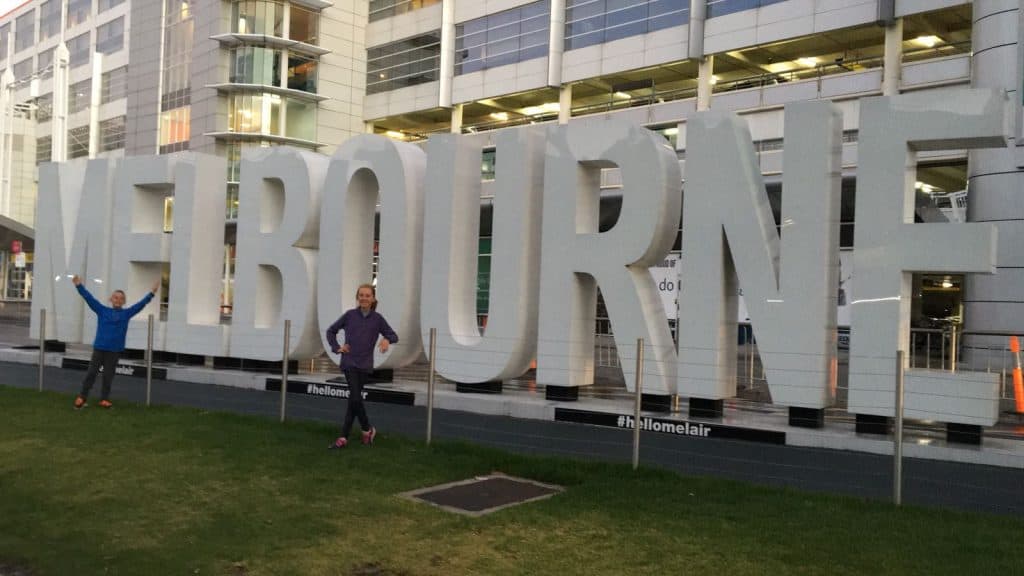


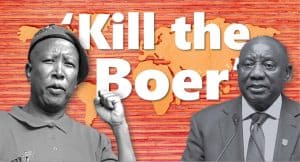
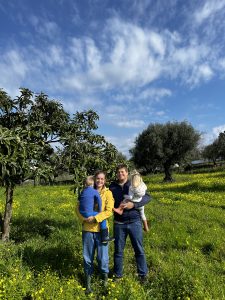





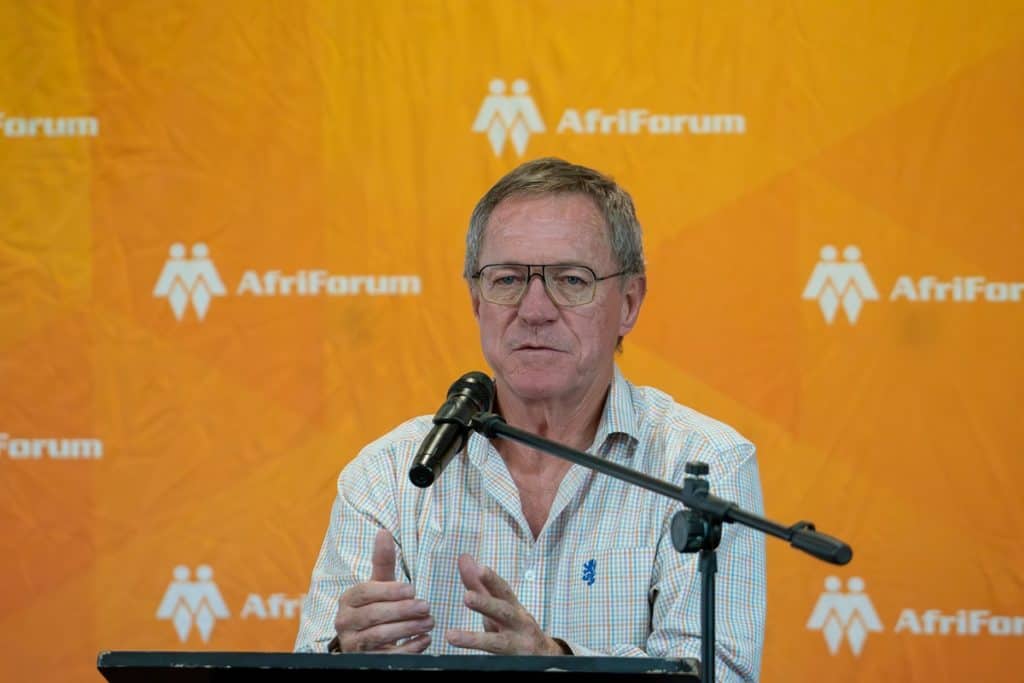

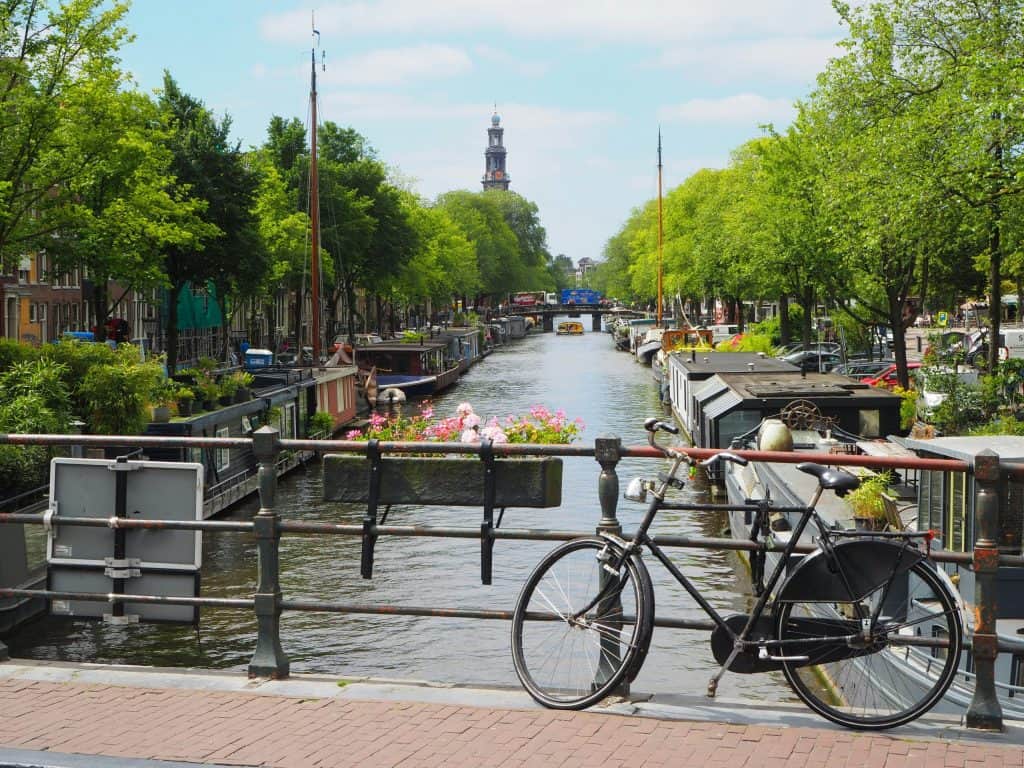





 @luza
@luza




